At Sutherland House Experts, we love author polymaths.
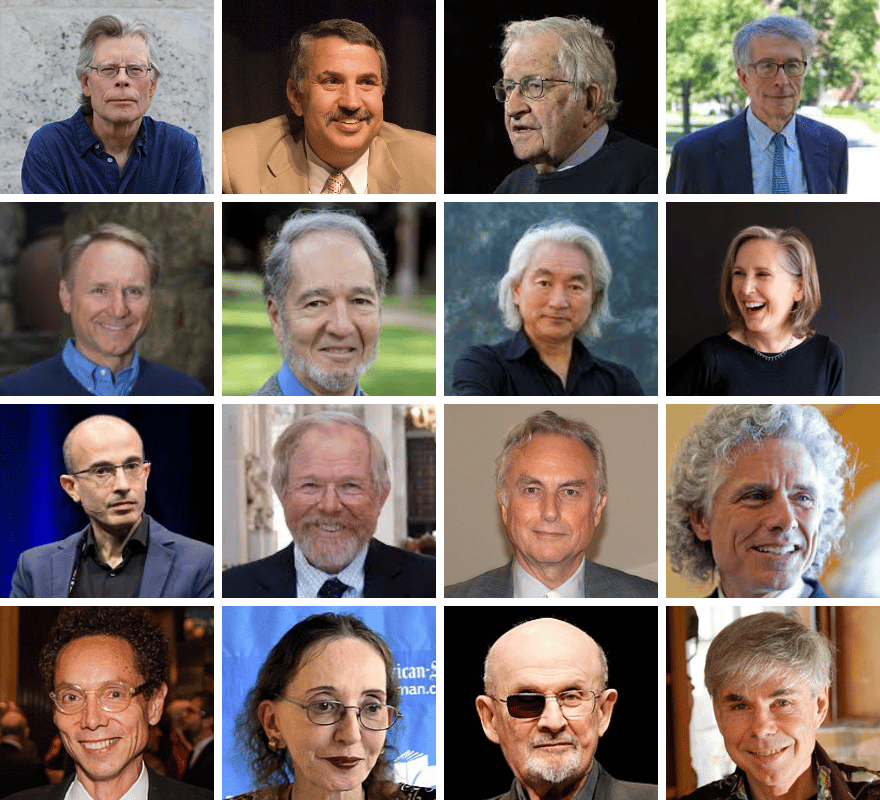
The term “polymath” derives from the Greek word πολυμαθής (polymathēs), which means “having learned much.” For the purposes of this analysis, a polymath is someone who leans deeply into multiple fields of investigation and whose big brain is widely respected for doing so. We figure if we read one polymath author a week, we’ll know a little more about the beauty and complexity of our world. This is why we decided to rank the top 16 polymath authors you may wish to read – even if you find yourself in violent disagreement with any.
So, how did we come up with this comprehensive list? Using Open Library AI, we examined living authors’ works across 12 major Library of Congress classifications (from General Works to Technology). The Open Library’s application programming interface (API) is a public portal provided by Open Library, a project of the Internet Archive. Authors were identified as polymath candidates if their works appeared in at least two different classifications. The ranking was calculated using a weighted scoring system: 40% weight for the number of different classifications in which an author published (i.e., breadth of knowledge), 30% for the diversity of subjects covered, 20% for the total number of books published, and 10% for the span of years they’ve been actively publishing. These weights prioritize intellectual range and subject diversity over pure volume of work.
Top 16 Polymath Authors (ranked by composite score):
Note: The number of classifications indicates how many different Library of Congress categories their works span across.
16. Douglas Hofstadter
(0.165) – 3 classifications

Douglas Richard Hofstadter (born February 15, 1945) is an American cognitive and computer scientist known for his research on topics such as the nature of self and its relationship to the external world, consciousness, analogy-making, strange loops, artificial intelligence, and the processes of discovery in mathematics and physics. His 1979 book, Gödel, Escher, Bach: An Eternal Golden Braid, received widespread acclaim, winning the Pulitzer Prize for General Nonfiction and the National Book Award (then called the American Book Award) for Science. In 2007, his book I Am a Strange Loop earned the Los Angeles Times Book Prize for Science and Technology.
Image: https://luddy.indiana.edu/contact/profile/?Douglas_Hofstadter
15. Salman Rushdie
(0.168) – 3 classifications
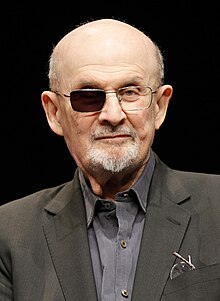
Sir Ahmed Salman Rushdie CH FRSL (born June 19, 1947) is an Indian-born British-American novelist celebrated for his masterful fusion of magic realism and historical fiction. His works often explore themes of connection, disruption, and migration between Eastern and Western civilizations, frequently set against the backdrop of the Indian subcontinent. Notable works include The Satanic Verses (1988), which ignited global debate for its exploration of religion and identity, and The Moor’s Last Sigh (1995), a sweeping tale intertwining Indian history and culture. His second novel, Midnight’s Children (1981), won the Booker Prize and was deemed the “best novel of all winners” on the prize’s 25th and 40th anniversaries.
Image: https://en.wikipedia.org/wiki/Salman_Rushdie
14. Joyce Carol Oates
(0.171) – 3 classifications
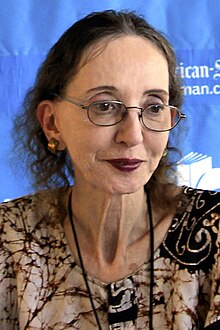
Joyce Carol Oates (born June 16, 1938) is an acclaimed American writer known for her prolific output across multiple genres, including novels, plays, novellas, short stories, poetry, and nonfiction. Since publishing her first book in 1963, she has written 58 novels and numerous other works. Her novels Black Water (1992), What I Lived For (1994), and Blonde (2000), along with her short story collections The Wheel of Love (1970) and Lovely, Dark, Deep: Stories (2014), were finalists for the Pulitzer Prize. Among her many accolades are the National Book Award for Them (1969), two O. Henry Awards, the National Humanities Medal, and the Jerusalem Prize in 2019.
Image: https://en.wikipedia.org/wiki/Joyce_Carol_Oates
13. Malcolm Gladwell
(0.176) – 3 classifications
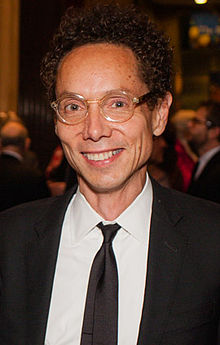
Malcolm Timothy Gladwell CM (born September 3, 1963) is a Canadian journalist, author, and public speaker known for his ability to translate complex social science research into engaging narratives. A staff writer for The New Yorker since 1996, Gladwell has published eight books, including The Tipping Point (2000), which examines how small changes can trigger major social transformations; Outliers (2008), which explores the factors behind extraordinary success; and Talking to Strangers (2019), a thought-provoking look at miscommunication and trust. He is also the host of the podcast Revisionist History and co-founder of Pushkin Industries. In recognition of his contributions, Gladwell was appointed to the Order of Canada in 2011.
Image: https://simple.wikipedia.org/wiki/Malcolm_Gladwell
12. Steven Pinker
(0.179) – 3 classifications
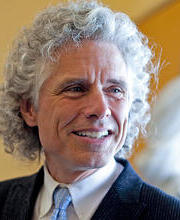
Steven Arthur Pinker (born September 18, 1954) is a Canadian-American cognitive psychologist, psycholinguist, popular science author, and public intellectual. Renowned for his advocacy of evolutionary psychology and the computational theory of mind, Pinker is celebrated for making complex scientific ideas accessible to a broad audience. His notable works include The Language Instinct (1994), which examines the innate basis of human language; How the Mind Works (1997), a comprehensive exploration of cognitive science; and The Better Angels of Our Nature (2011), which argues that violence has declined over time due to cultural and social progress. Pinker’s engaging writing and thought-provoking insights have made him a leading figure in contemporary science communication.
Image: https://psychology.fas.harvard.edu/people/steven-pinker
11. Richard Dawkins
(0.182) – 3 classifications
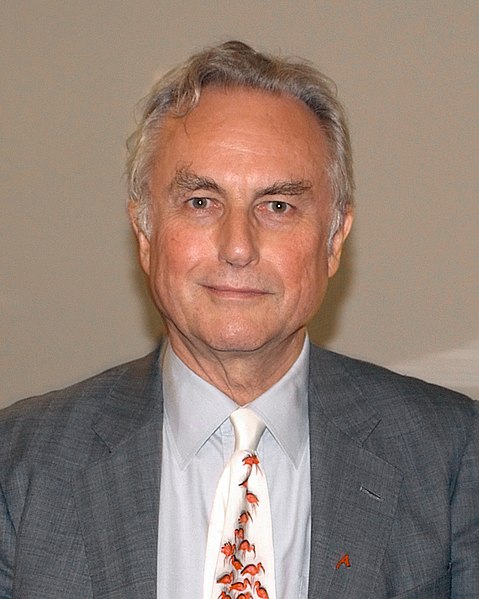
Richard Dawkins FRS FRSL (born March 26, 1941) is a British evolutionary biologist, zoologist, science communicator, and author known for his influential contributions to the public understanding of science. His groundbreaking book The Selfish Gene (1976) introduced the gene-centered view of evolution and popularized the concept of the “meme.” Other notable works include The Blind Watchmaker (1986), which dismantles arguments for intelligent design, and The God Delusion (2006), a bestseller advocating for atheism. Dawkins is widely recognized for his critiques of creationism and intelligent design, as well as his advocacy for science and secularism.
Image: https://en.wikipedia.org/wiki/Richard_Dawkins
10. Bill Bryson
(0.185) – 3 classifications
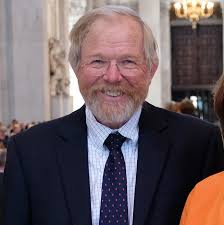
William McGuire Bryson (born December 8, 1951) is an American-British journalist and author renowned for his engaging nonfiction works spanning topics such as travel, the English language, and science. Known for his wit and accessible writing style, Bryson has authored several acclaimed books, including A Walk in the Woods (1998), a humorous account of hiking the Appalachian Trail; A Short History of Nearly Everything (2003), an exploration of science and the universe; and At Home: A Short History of Private Life (2010), which delves into the history behind everyday household objects and practices. Bryson’s ability to blend humor with insightful commentary has made him a beloved figure in modern nonfiction.
Image: https://en.wikipedia.org/wiki/Bill_Bryson
9. Yuval Noah Harari
(0.221) – 3 classifications
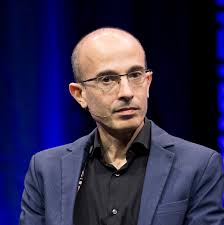
Yuval Noah Harari (born February 24, 1976) is an Israeli historian, public intellectual, and writer, renowned for his work in medieval and military history. His writing explores themes such as free will, consciousness, intelligence, happiness, and suffering, establishing him as a prominent figure in contemporary intellectual discourse. Harari’s popular science bestsellers include Sapiens: A Brief History of Humankind (2011), which traces the history of humanity from the Stone Age to the present; Homo Deus: A Brief History of Tomorrow (2016), which examines the future of humanity and the rise of artificial intelligence; and 21 Lessons for the 21st Century (2018), which tackles urgent modern issues. His books also investigate the possible consequences of a biotechnological future, where intelligent biological organisms may be outpaced by their own creations.
Image: https://en.wikipedia.org/wiki/Yuval_Noah_Harari
8. Mary Roach
(0.237) – 3 classifications

Mary Roach (born March 20, 1959) is an American author known for her unique blend of popular science and humor, which has captivated readers worldwide. Her works often delve into unusual and fascinating scientific topics, presented with wit and an accessible style. Roach’s notable books include Stiff: The Curious Lives of Human Cadavers (2003), a compelling exploration of the many uses of human bodies after death; Packing for Mars: The Curious Science of Life in the Void (2010), which examines the peculiar challenges of space travel; and Gulp: Adventures on the Alimentary Canal (2013), an entertaining journey through the digestive system. Through her engaging storytelling, Roach has made complex scientific subjects both entertaining and approachable for general audiences.
Image: https://maryroach.net/maryroach.html
7. Michio Kaku
(0.276) – 3 classifications
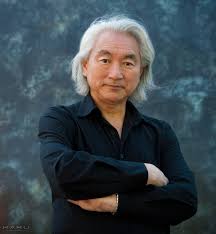
Michio Kaku (born January 24, 1947) is an American physicist, science communicator, futurist, and popular science author celebrated for making complex scientific concepts accessible to the public. He has written extensively about physics and related fields, with his works often bridging the gap between science and science fiction. Kaku’s notable books include Physics of the Impossible (2008), which explores futuristic technologies that may one day become reality; The Future of the Mind (2014), a deep dive into the potential of neuroscience and artificial intelligence; and The God Equation (2021), which examines the quest for a unifying theory of everything. In recognition of his efforts to connect science and science fiction, Kaku was honored with the Sir Arthur Clarke Lifetime Achievement Award in 2021.
Image: https://www.imdb.com/name/nm0435434/
6. Jared Diamond
(0.327) – 4 classifications
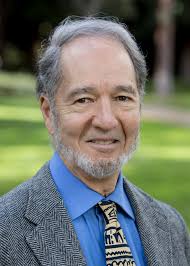
Jared Mason Diamond (born September 10, 1937) is an American scientist, historian, and author renowned for his interdisciplinary approach to exploring the complexities of human history and the natural world. Over his career, Diamond has written hundreds of scientific papers, popular articles, and influential books that examine the interplay between geography, biology, and societal development. His most celebrated work, Guns, Germs, and Steel: The Fates of Human Societies (1997), won the 1998 Pulitzer Prize for General Nonfiction and several other honors for its groundbreaking analysis of the factors shaping human history. Other notable works include Collapse: How Societies Choose to Fail or Succeed (2005), which investigates the environmental and societal causes of societal downfall, and Upheaval: Turning Points for Nations in Crisis (2019), a comparative study of how nations respond to crises.
Image: https://www.ioes.ucla.edu/person/jared-diamond/
5. Dan Brown
(0.397) – 4 classifications

Daniel Gerhard Brown (born June 22, 1964) is an American author celebrated for his captivating thriller novels. His most famous works include Angels & Demons (2000), The Da Vinci Code (2003), and Inferno (2013), all of which were successfully adapted into films. Brown’s novels, characterized by high-stakes treasure hunts unfolding within 24 hours, delve into themes such as cryptography, art, and conspiracy theories. The Lost Symbol (2009) was also adapted into a television series, solidifying Brown’s influence in modern literature and entertainment.
Image: https://danbrown.com/
4. Howard Gardner
(0.547) – 4 classifications
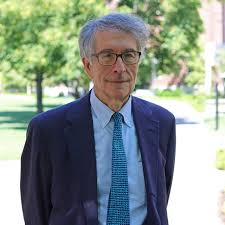
Howard Earl Gardner (born July 11, 1943) is an American developmental psychologist celebrated for his impactful contributions to education and cognitive development. Gardner has authored hundreds of research articles and over thirty books. He is best known for his groundbreaking theory of multiple intelligences, first introduced in his 1983 book Frames of Mind: The Theory of Multiple Intelligences. Among his other significant works are The Unschooled Mind: How Children Think and How Schools Should Teach (1991), which addresses the challenges of education, and Truth, Beauty, and Goodness Reframed: Educating for the Virtues in the Twenty-First Century (2011), which investigates the importance of ethics and values in modern learning.
Image: https://www.gse.harvard.edu/directory/faculty/howard-gardner
3. Noam Chomsky
(0.606) – 5 classifications
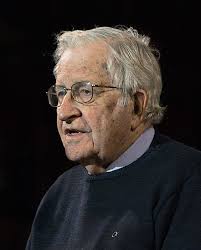
Avram Noam Chomsky (born December 7, 1928) is an American professor, public intellectual, and prolific author renowned for his work in linguistics, political activism, and social criticism. Often referred to as “the father of modern linguistics,” Chomsky is a central figure in analytic philosophy and a pioneering founder of cognitive science. As one of the most cited living authors, he has authored over 150 books, including seminal works such as Syntactic Structures (1957), which revolutionized the study of linguistics, Manufacturing Consent (1988), co-written with Edward S. Herman, on media and propaganda, and Hegemony or Survival (2003), exploring U.S. foreign policy. Chomsky’s influence spans multiple disciplines, cementing his role as a leading thinker of our time.
Image: https://en.wikipedia.org/wiki/Noam_Chomsky
2. Thomas Friedman
(0.609) – 6 classifications
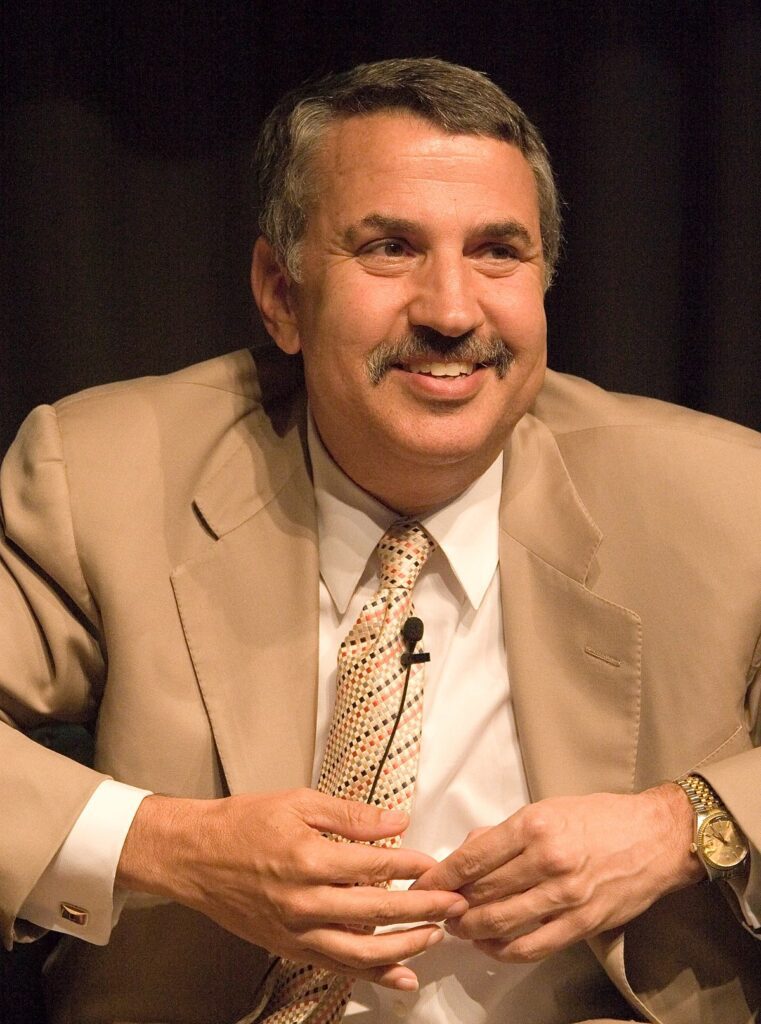
Thomas Loren Friedman (born July 20, 1953) is an American political commentator, author, and three-time Pulitzer Prize winner. A weekly columnist for The New York Times, Friedman is renowned for his incisive analyses on topics such as foreign affairs, global trade, the Middle East, globalization, and environmental challenges. He is best known for his books The Lexus and the Olive Tree (1999), which explores globalization’s impact; The World Is Flat (2005), a seminal work on the interconnected global economy; and Hot, Flat, and Crowded (2008), which addresses climate change and energy policy. His scope of contributions have made him a leading voice in opinion journalism and public discourse.
Image: https://en.wikipedia.org/wiki/Thomas_Friedman
1. Stephen King
(0.706) – 4 classifications
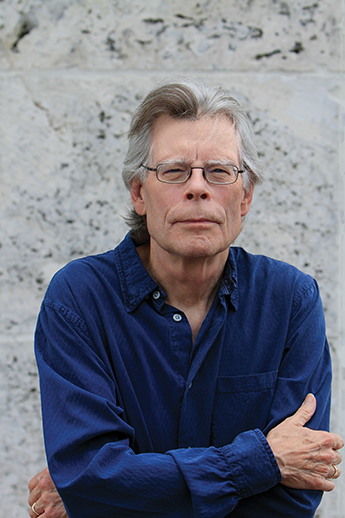
Stephen Edwin King (born September 21, 1947) is an acclaimed American author, widely recognized as the “King of Horror” for his contributions to the horror genre. In addition to horror, his diverse body of work spans suspense, crime, science fiction, fantasy, and mystery. Among his most prestigious works are, The Shining (1977), a psychological horror masterpiece; It (1986), a chilling tale of childhood fear and friendship; and The Stand (1978), an epic post-apocalyptic saga that blends horror and speculative fiction. King’s ability to craft compelling stories with rich characters has made him a towering figure in modern literature.
Image: https://stephenking.com/the-author/
–
In ancient Greece, polymathy was a revered trait. Philosophers like Aristotle embodied this ideal, pursuing knowledge across diverse fields such as ethics, biology, politics, and metaphysics. Even today, the legacy of polymaths continues to inspire admiration and influence modern thinkers.
Are you an aspiring polymath author, or know of one? Email us at info@sutherlandhouseexperts.com or fill out our author form today!
